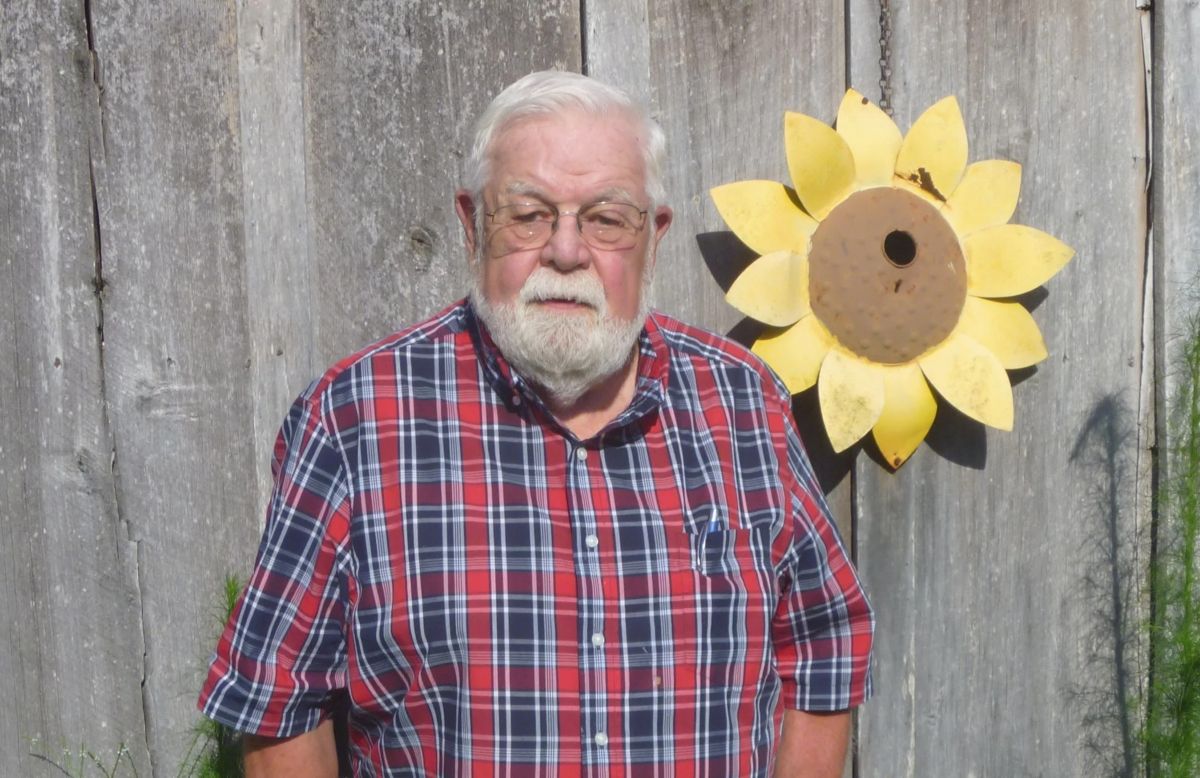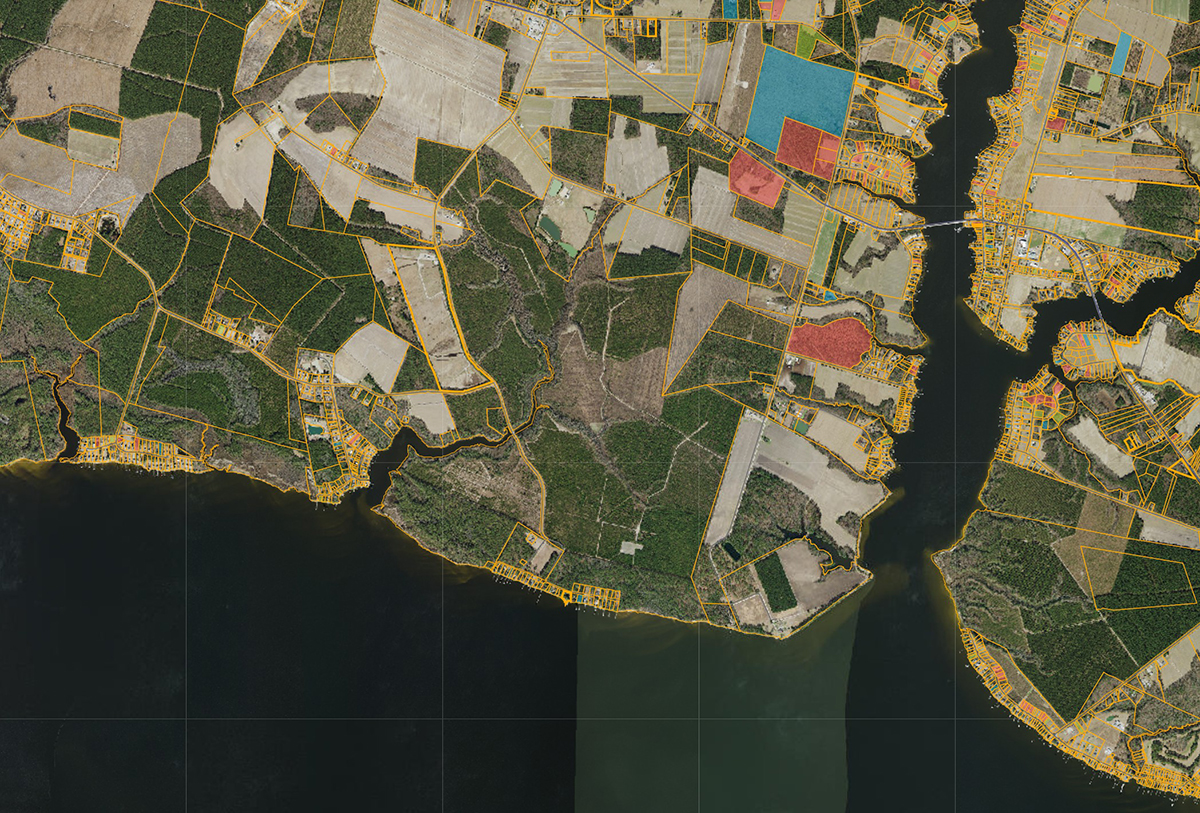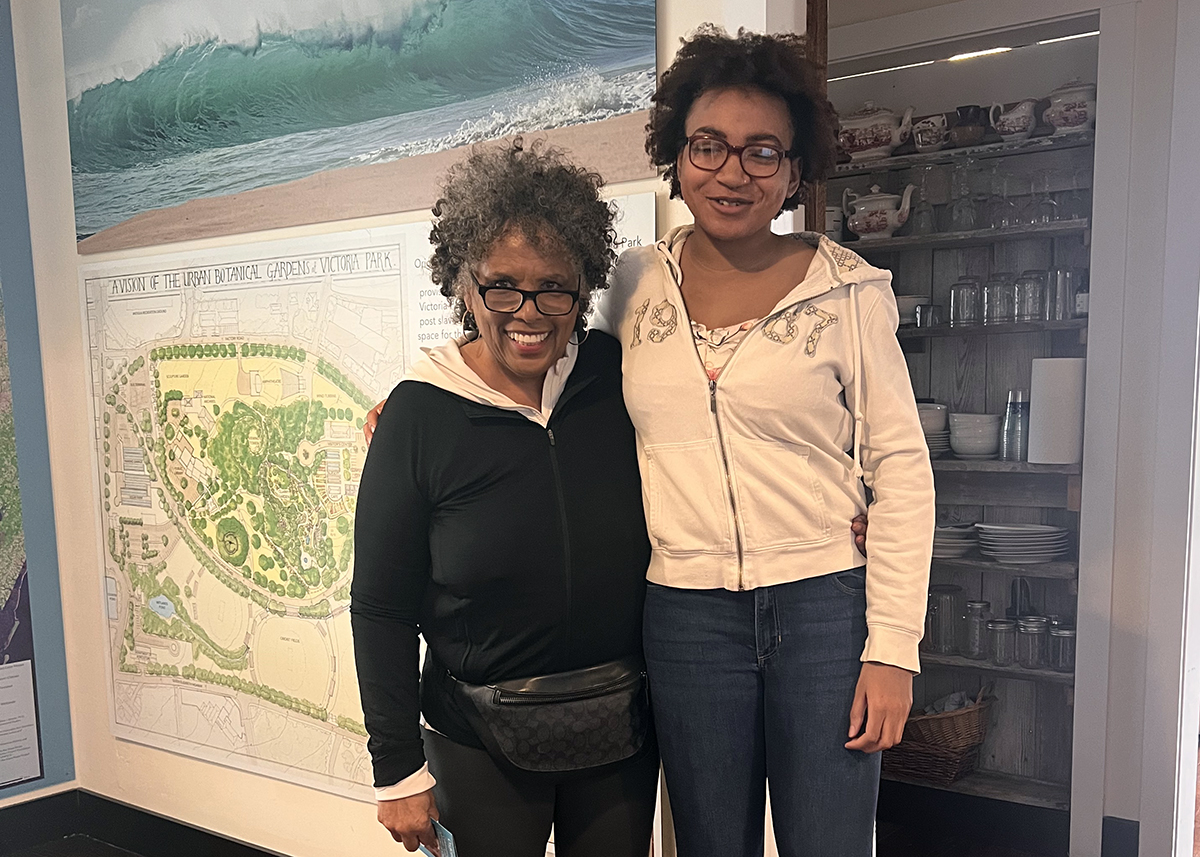
Capt. John Mallette grew up fishing, but didn’t come from a fishing family.
Born and reared around Sneads Ferry and the Topsail area, he said his mother worked in real estate in Wilmington and his father was one of Ocean City’s original developers and bought a home there in 1950.
Supporter Spotlight
Ocean City was established on Topsail Island in 1949 and was “the first place where Black people could have oceanfront property” in the state, Mallette recently told Coastal Review.
The motel had a pier, and “I pretty much lived on the pier fishing as a little kid,” he continued.
“There was a lady who had One Stop Bait & Tackle in Surf City — Betty Warren, she’s long passed away now — but she would babysit me, basically, and I would sit there and help sell seafood and head shrimp and filet flounder. And then her husband, Preston, would take me out shrimping in the waterway with him, and that’s how I got started commercial fishing and just never stopped. I just grew into it, and started running boats.”
From there, he became a captain and spent several years piloting various commercial, private and charter vessels in Central and South America, Australia and Hawaii. While a fishing guide on a private island near Turks and Caicos, he learned his mother was ill and returned to the U.S. in 2008 to take care of her.
These days he co-owns Southern Breeze Seafood Co. on U.S. Highway 258 between Richlands and Jacksonville. He delivers fresh seafood all over the state, including to a handful of universities such as Elon and North Carolina Central.
Supporter Spotlight
“Wednesday, Thursday, Friday I’m on the road for the most part,” he said.
Stories like his are the backbone of an ongoing NC Catch Initiative to highlight African American contributions to the North Carolina Seafood Industry. Established in 2011, NC Catch is a nonprofit organization that aims to educate consumers about the state’s seafood industry.
Mallette and NC Catch President Barbara Garrity-Blake, a cultural anthropologist who teaches fisheries policy at the Duke University Marine Lab in Beaufort, are heading up the project, “Recognizing African American Participation in the North Carolina Seafood Industry.”
The project is the center of a new traveling exhibit, “African Americans in North Carolina Seafood,” that will debut March 9 at the Core Sound Waterfowl Museum and Heritage Center on Harkers Island.
Garrity-Blake told Coastal Review that NC Catch wanted to highlight the diversity of people and roles within the seafood supply chain.
“The seafood industry is made up of men and women of various races and ethnicities who harvest, process, transport, buy, sell, and cook North Carolina seafood. We are focusing on Black contributions because African Americans have a history and legacy in North Carolina fisheries since Colonial days, from herring to menhaden, blue crab, mullet, shrimp — all of it,” she said.
For the project, people from the Black seafood business community and researchers worked together to compile narratives, video and oral histories of Black fishers, wholesalers, chefs and others working in seafood to increase recognition of African American participation in the state’s seafood industry. These currently are being housed on the NC Catch website.
Garrity-Blake said that Mallette is a “perfect co-principal investigator because he delivers seafood all over North Carolina and knows so many people in the industry. Right away he had a list of Black practitioners for us to interview,” and the “stories we are documenting are so compelling.”
Among those who shared their story for the project is Tyrone Hightower of Apex Seafood. Also on the NC Catch board, he quit a career in veterinary science to sell seafood at triangle-area farmers markets because he loves interacting with people, Garrity-Blake explained.
“He had a tough time breaking in at first, but Brett Blackburn, a major seafood distributor out of Carolina Beach, helped him out and taught him ‘fishermen’s language,’ like what shrimp counts mean,” she said.
Another is a young shrimper named Nate Ellison, who lives in the unincorporated Carteret County community of Merrimon. He “talked about his determination to maintain working waterfront access at the end of Silver Dollar Road, which was infamously sold out from under his family,” Garrity-Blake continued.
A husband-and-wife team who fish out of Hertford, Herman and Quinetta “Mermaid Q” Manley of Crackn Crab Seafood are featured as well. They “had their crab pots cut, their boat sunk, and their business shunned. But they stuck to their guns and eventually earned the respect of the community. Today they crab, fish, and sell seafood in low-income neighborhoods to help combat food insecurity,” she said.
Project’s early days
Garrity-Blake and Mallette connected during the 2021 North Carolina Seafood Festival, held annually the first weekend of October in downtown Morehead City.
Mallette said he was there to give a cooking demonstration for Got to Be NC, a marketing campaign for North Carolina products under the N.C. Department of Agriculture and Consumer Services, and they “just started a conversation.”
Garrity-Blake told Coastal Review that during this conversation, Mallette shared his experiences as a commercial fisherman out of Sneads Ferry, which she said she found interesting.
“Since the last menhaden fish factory in North Carolina closed in 2005, you don’t meet a lot of African American fishermen. Long story short, Capt. John joined the NC Catch board, and we applied for a NC Sea Grant’s Community Collaborative Research Grant — pairing researchers and practitioners — to do this project,” she said.
Mallette also recognized that “African American commercial fishermen are few and far between. And it’s always been that way. The question is, why?”
When he was the captain of larger vessels while traveling around the globe, he said only a few of the American captains were Black. “It was me and maybe two other guys. Literally the only ones.”
So, they started exploring and researching, looking into stereotypes like “Black people can’t swim” and “little things that people would actually take to heart, “Mallette said.
While talking with the old fishermen and fish house owners he grew up around, “It was never, ‘we didn’t have Black shrimp boat captains or Black guys running the boats, because they were Black.’ They tried to give them the jobs, but they wouldn’t do it because a lot of their grandmothers and moms would be like, ‘That water ain’t for us. You stay on the dock,’” Mallette recounted.
They’d pack fish or head shrimp but wouldn’t actually go out on the boats, “and it wasn’t that they didn’t have the opportunities given to them, a lot of it was they were just always told that that wasn’t for them.”
Mallette said he never understood that either, especially once he began traveling.
The best fishermen were Black when he was in Central and South America, the Caribbean, and West Africa. “All through the Caribbean, your commercial fishermen are Black,” he said, but not in the United States. “It’s the one place you just don’t see it.”
About the exhibit
During the exhibit opening that begins at 4 p.m. Sunday, March 9, visitors will have an opportunity to listen to a panel discussion, and a cooking demonstration with Chef Ricky Moore of Saltbox Seafood Joint in Durham, Chef Jamie Davis of The Hackney in Washington, and Chef Keith Rhodes of Catch in Wilmington.
The public is welcome at no charge and are asked to register online ahead of the event.
“NC Catch’s mission is to raise awareness about the superior quality of North Carolina seafood and the importance of supporting the people, families, and communities who provide consumer access to it,” Garrity-Blake said. “Through the lens of North Carolina’s African American seafood legacy, we are ‘taking it to the people’ so they can enjoy the exhibit, hear firsthand stories about Black experiences in seafood, and taste what it’s all about.”
Core Sound’s Exhibit Curator Pam Davis Morris told Coastal Review that the museum is proud to host the opening exhibition and is glad to have provided a supporting role in its development.
“This exhibition dovetails in well with and builds upon previous work produced by the Core Sound Museum such as the popular Menhaden Fishery exhibition, The Local Fisheries Knowledge Project, Community Exhibit displays and many other oral history and artifact-driven projects,” Morris said. “Built as a traveling exhibition, this display will not only be shown at the Core Sound Museum but will travel to other sites as well.”
The exhibit is a kick-off for the NC Catch Summit taking place March 10 at Carteret Community College in Morehead City. Also a no-charge event, the daylong program will look at the state’s fisheries and seafood industry. Register online to attend.
NC Catch held a preview of the exhibit at the University of North Carolina Wilmington Tuesday, followed by a “Chef’s Takeover” cooking demonstration with Davis, Rhodes, and Mallette.
Garrity-Blake said Wednesday after the event that it “went great.” The program was well attended, there was good discussion and the “food was fantastic.” Mallette prepared shrimp and crabmeat etouffee, Rhodes made a “Soul Bowl” with salmon, black-eyed peas and plantains, and Davis prepared fried catfish with ham hock gravy.







